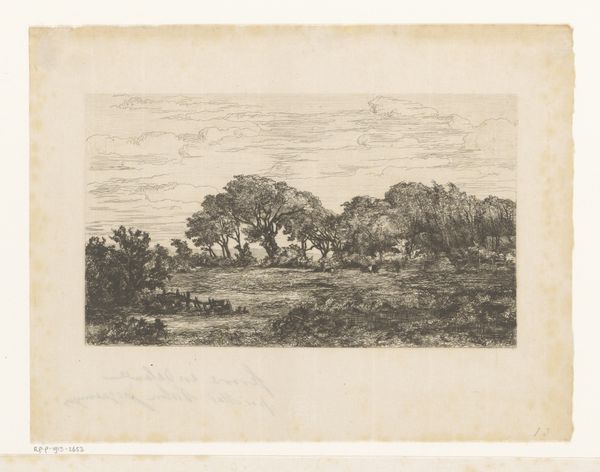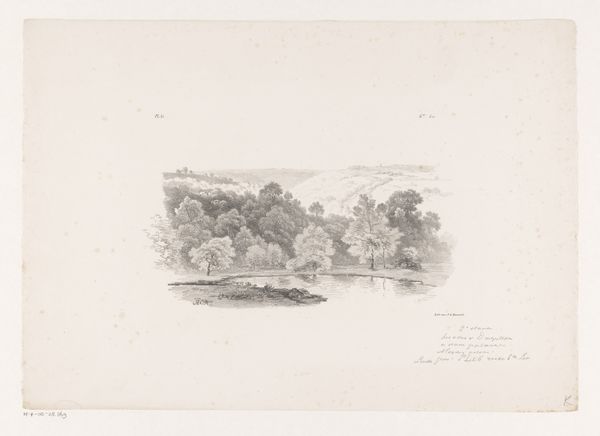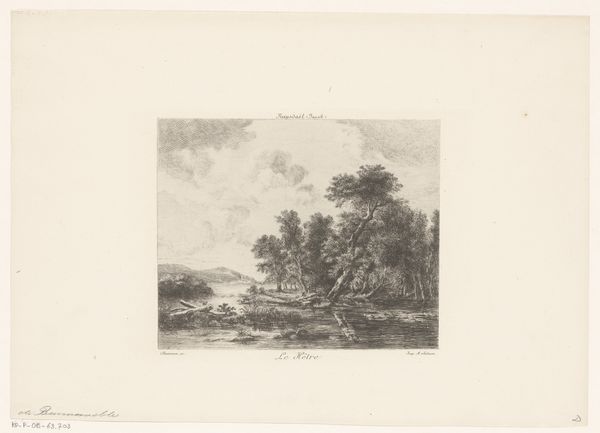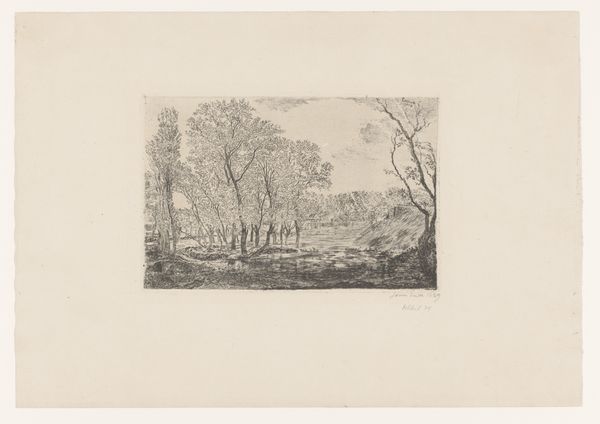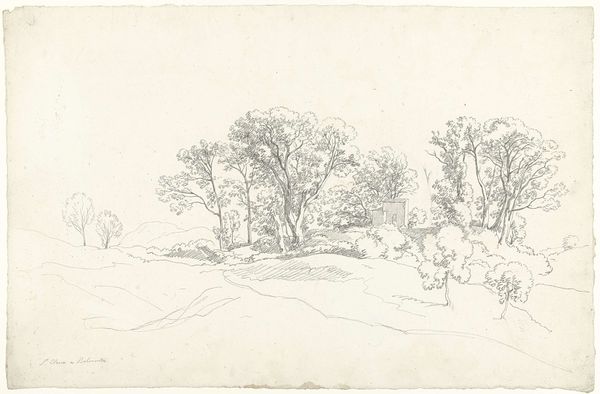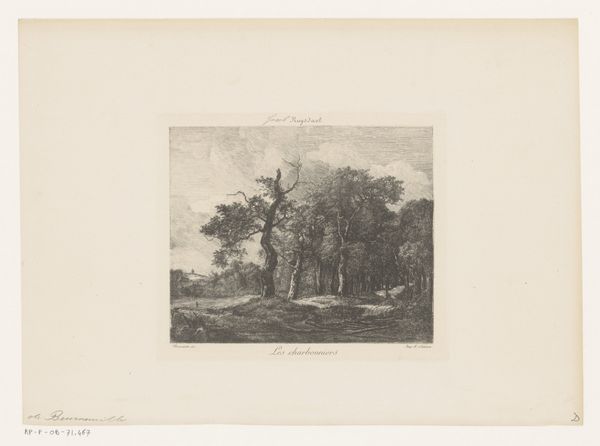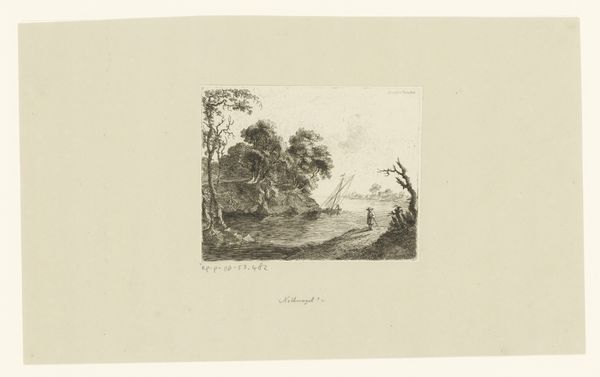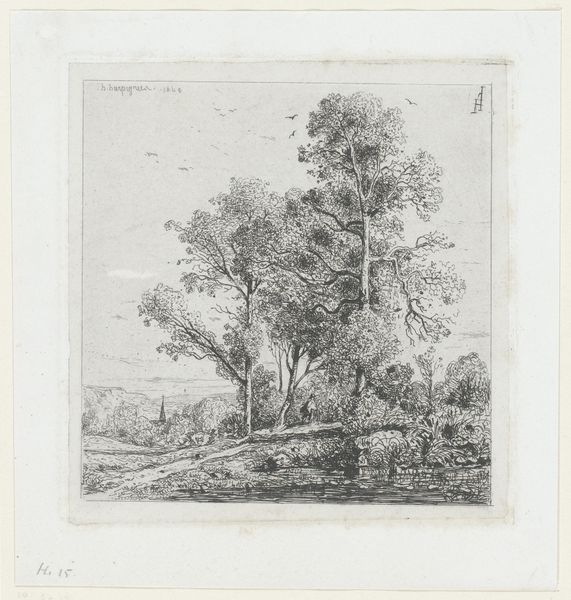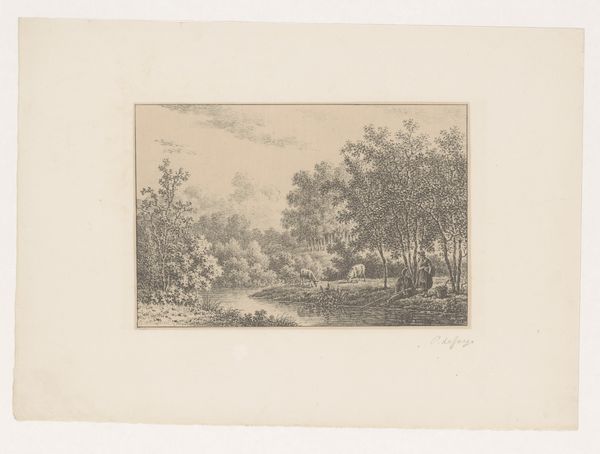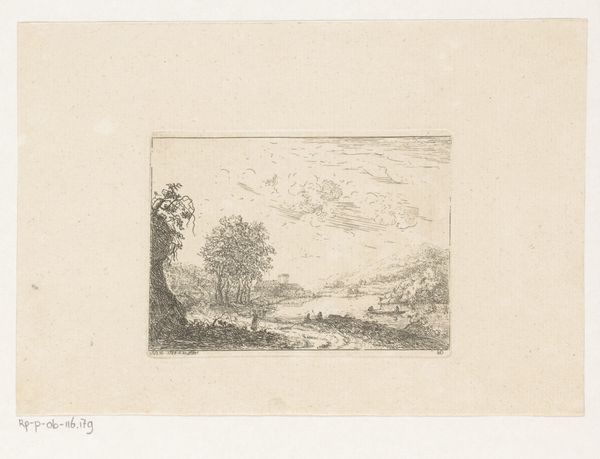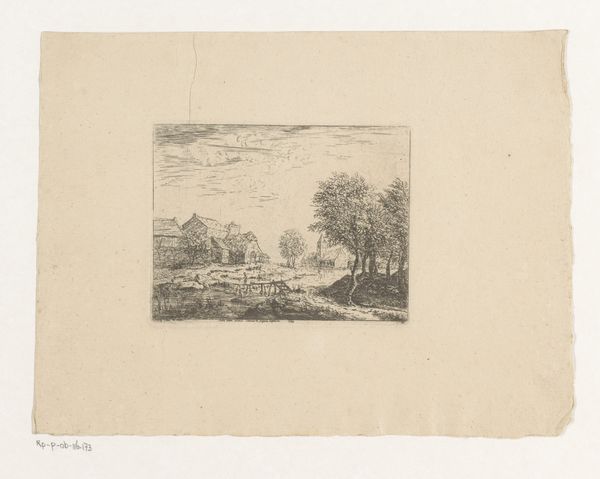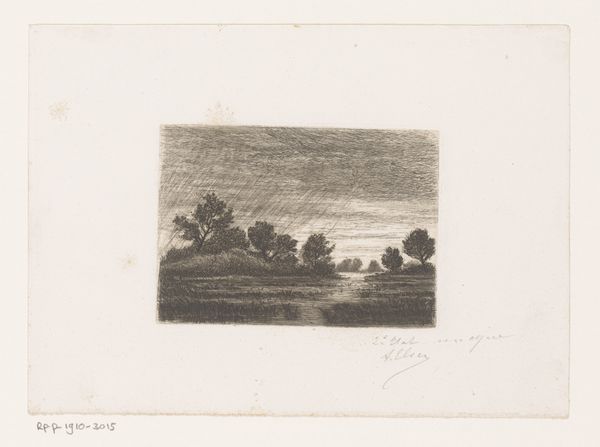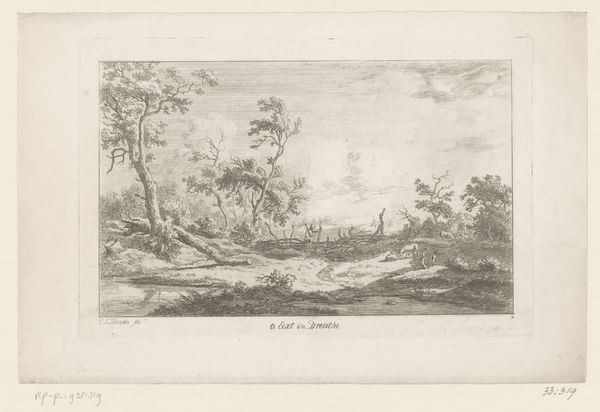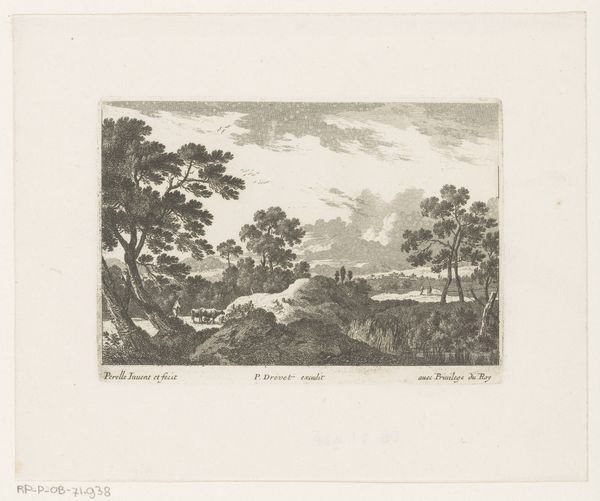
drawing, print, etching, paper
#
drawing
# print
#
etching
#
landscape
#
paper
#
france
#
cityscape
Dimensions: 65 × 92 mm (image); 144 × 185 mm (sheet)
Copyright: Public Domain
Curator: Here we have "A Castle" by Charles Jacque, rendered through etching on paper. It presents a landscape, possibly in France given Jacque's nationality. Editor: My initial impression is that this little print exudes tranquility. The meticulous linework invites quiet contemplation, almost as if one is paused on the river bank taking in the distant castle and the surrounding landscape. Curator: Precisely. Note the distribution of light and shadow created by the dense lines of the etching. Observe how the trees, the water and the building in the distance are depicted. What we have is essentially a structured play of black and white which, incidentally, enhances its reflective quality. The castle, barely visible, adds a historical element, hinting at narratives of power and social structure in the rural setting. Editor: The prominence of nature, especially those looming trees on either side of the river, certainly brings a counterpoint to that "historical element". The overall image implies a commentary about the lasting power of nature contrasted with the fleeting impact of humanity. This would certainly speak to changing societal attitudes where the old hierarchies, represented by the castle on the hill, are giving way to more modern appreciation of the natural landscape. Curator: I am glad you noticed the formal dialogue being structured between the trees as vertical signifiers and the river acting as the visual base. There's almost a grammatical symmetry at work which also speaks about the way we read paintings. Do we privilege structure or freedom? In some sense, it echoes philosophical concerns from the time surrounding rationalism versus romanticism. Editor: It’s tempting to view this etching as a social commentary on 19th-century France with its transition from aristocracy to broader accessibility and enjoyment of land, where previously private land starts to transform into spaces that can be appreciated by everyone, even without explicit access. Curator: Very insightful. Indeed, Jacque’s compositional and thematic choices offer a unique lens through which to examine how we create meanings via formal languages and grammar of space. Editor: Considering how art and public space changed in that era makes me appreciate these visual details even more, because what would seem just as another landscape, turns out to encapsulate relevant themes during this time in France.
Comments
No comments
Be the first to comment and join the conversation on the ultimate creative platform.
